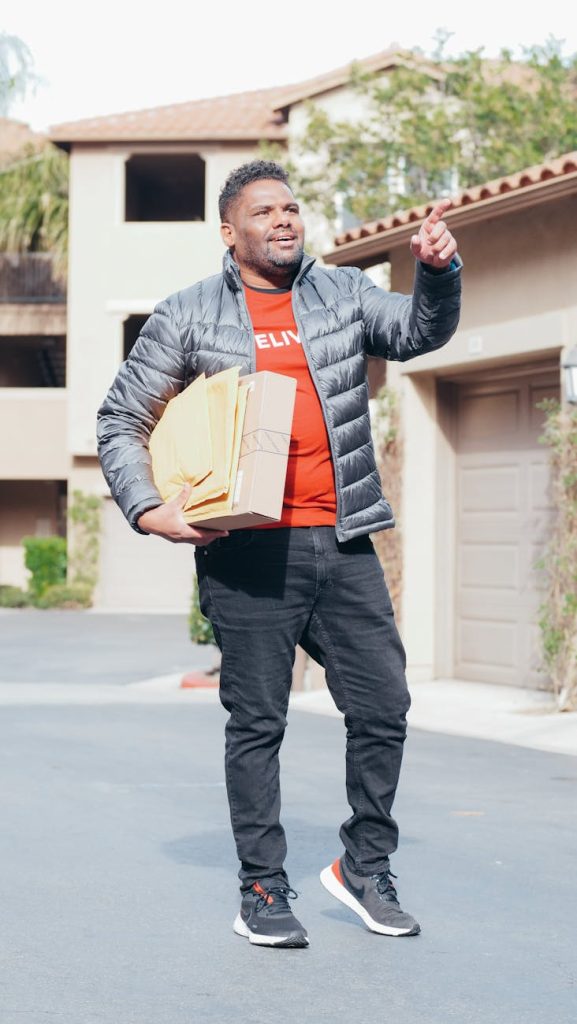Saturday Morning, To‑Do List in Hand, Zero Intention of Studying
The plan was simple: grocer, pharmacy, laundromat, and bakery before noon. No flashcards, no textbooks—just chores. But Spanish has a sneaky habit of turning ordinary errands into pop quizzes. Over time, I realized every “quick stop” offered a new verb, an idiomatic expression, or at least a pronunciation tweak. So I leaned in, treating each errand as a micro lesson. Here’s how one ordinary Saturday ballooned into a 1,600‑word crash course—complete with clumsy moments, good‑natured teasing from locals, and plenty of Spanish phrases (bold) followed by English translations (italic).
Stop 1: Colmado—Vocabulary in the Produce Aisle
The Scene
Plastic crates overflow with plantains and avocados the size of soccer balls. A young clerk, Jorge, is spraying water on cilantro bunches.
Spanish (me): “Buenos días, Jorge. ¿A cómo está el aguacate hoy?”
Good morning, Jorge. How much is the avocado today?
Spanish (Jorge): “A cincuenta si lo lleva madurito, treinta si está verde.”
Fifty pesos if it’s ripe, thirty if it’s green.
I frown at two shades of green like a confused art critic. Jorge picks one, presses the stem.
Spanish: “Este está en su punto. Si lo abre y sale negro, se lo cambio.”
This one’s perfect. If you cut it open and it’s black inside, I’ll swap it.
Mini Lesson: En su punto means “just right”—works for steak, coffee, or weather.
I grab two plantains. A grandma behind me warns:
Spanish: “Esos están pintones, te duran hasta el martes.”
Those are pintones (yellow‑tinged), they’ll last till Tuesday.
I add pintón to mental dictionary: half‑ripe plantain.
At checkout, the cashier asks:
Spanish: “¿Lo quiere fiado o al contado?”
Credit tab or cash?
I pay cash, but new word fiado—store credit.
Stop 2: Pharmacy—Politeness Particles and Anatomy Terms
The Prescription Mix‑Up
My friend Ana messaged needing ibuprofen 600 mg. Inside Farmacia Carol, the pharmacist greets me.
Spanish (pharmacist): “¿En qué puedo ayudarle, caballero?”
How can I help you, sir?
Spanish (me): “Busco ibuprofeno de seiscientos miligramos, por favor.”
I’m looking for ibuprofen 600 mg, please.
He scans shelves, returns.
Spanish: “Solo tengo cuatrocientos. Puede tomar dos pastillas.”
I only have 400 mg. You can take two pills.
I nod, but remember Ana’s gastric issues.
Spanish: “Ella tiene el estómago sensible. ¿Algún protector gástrico?”
She has a sensitive stomach. Any stomach‑protector?
He suggests omeprazol. We discuss dosage. I pocket receipt and notice phrase “venta bajo receta”—prescription‑only sale—stamped next to antibiotics. Mental note: never ask for amoxicillin casually.
Story Detour: The Day My Mispronunciation Rescued a Stranger
Weeks earlier I’d mispronounced “jarabe” (syrup) as “jabale.” The pharmacist laughed but corrected me. Today, a tourist fumbles same word; I chime in confidently. We bond, exchange WhatsApp. Language mistakes recycled into social currency.
Stop 3: Lavandería—Command Forms and Liquid Soap Debate
The Laundry Dialogue
Tiny storefront, machines humming. Attendant Rosa weighs my clothes.
Spanish (Rosa): “Déjame la ropa suelta y quita las monedas de los bolsillos.”
Leave me the clothes loose and remove coins from the pockets.
Imperative “deja, quita” delivered in rapid succession—live grammar.
She asks preference:
Spanish: “¿Suavizante o solo jabón líquido?”
Fabric softener or just liquid detergent?
I choose both. She types receipt, hands ticket.
Spanish: “Estará lista para las cuatro. Si quieres entrega exprés, son cincuenta más.”
It’ll be ready by four. Express delivery costs fifty more.
I decline, planning a lazy afternoon. New word: exprés used like English but with accent.
Stop 4: Panadería—Numbers, Fractions, and Flaky Apologies
Croissant Catastrophe
Bakery line three people deep. Aromas of cinnamon and guava. I order:
Spanish: “Dame un cuarto de libra de pan de agua y dos croissants de chocolate, por favor.”
Give me a quarter pound of Dominican water bread and two chocolate croissants, please.
Cashier wraps items. I pivot, bag tears, croissants tumble. A collective gasp.
Spanish (me, sheepish): “¡Ay, qué torpe soy! ¿Me lo puede repetir?”
Ay, how clumsy I am! Could you repeat the order?
Cashier smiles, replaces at no charge.
Spanish (cashier): “No pasa nada, corazón. Eso le puede pasar a cualquiera.”
It’s okay, dear. That could happen to anyone.
Phrase “no pasa nada” comforts mishaps—valuable beyond pastries.
Cultural Observation: Compliments Compute Better Than Coins
While she rewraps, I say:
Spanish: “Huele riquísimo aquí. Ese bizcocho de zanahoria me está tentando.”
It smells amazing in here. That carrot cake is tempting me.
She slices a sliver, hands it over: “Pruebe, está recién horneado.”—Try it, it’s freshly baked. Compliment earned sample; Spanish paid dividends.
Lunchtime Debrief: Notebook on the Patio
I jot today’s new gems: pintón, estómago sensible, venta bajo receta, jabón líquido, no pasa nada. I dash translations, doodle mango next to torpe (clumsy) to remember slip‑up.
Afternoon Bonus Errand: Paying the Electricity Bill—Formal Register Crash Course
At the EdeNorte Office
Queue ticket flashes A‑207. Agent waves me over.
Spanish (agent): “Buenas tardes, ¿en qué le ayudo?”
Good afternoon, how can I help you?
Spanish (me): “Vengo a pagar la factura de luz. No tengo la impresión, solo el número de contrato.”
I’m here to pay the electricity bill. I don’t have the print‑out, just the contract number.
He nods, looks up account.
Spanish: “Tiene un recargo por mora de cien pesos. ¿Desea cancelarlo hoy?”
You have a late fee of 100 pesos. Want to settle it today?
I swallow pride and pesos, pay. Word mora (late fee) etched by pain of penalty.
Receipt bottom lists “consumo promedio” (average consumption) and “próxima fecha de corte.” Filing away for future energy chats.
Evening Reflection: Language Gains Tallied Like Receipts
Counting new vocabulary: at least fifteen words, five idioms, two imperative structures—all without opening a textbook. Errands delivered linguistic ROI.
Practical Tips to Turn Your Errands into Lessons—Sprinkled, Not Bulleted
Carry a tiny notebook; scribble overheard phrases before they evaporate like café steam. Ask at least one open‑ended question per stop: “¿Cómo lo preparas?” at the butcher, “¿Cuál es la diferencia entre estos dos jabones?” at the pharmacy. Praise people’s products; gratitude lubricates conversation and invitations to learn more.
The Croissant Redemption: A Follow‑Up Story
Two weeks later I return to bakery. Same cashier beams: “¡Hola, corazón! ¿Hoy sin accidentes?” I grin, flawlessly order in Spanish, bag handles reinforced with double knot she provides. We laugh. She adds an extra sprinkle of powdered sugar “for the student.” Errand vocabulary blossoms into rapport.
Conclusion: Errands Aren’t Chores—They’re Pop‑Up Classrooms
Language isn’t confined to classrooms or apps; it lurks in avocado negotiations, pharmacy disclaimers, and even crumpled pastry bags. Each outing offers a syllabus written by real life. Next Saturday, rewrite your to‑do list as a course outline: Avocados 101, Pharmacology Español, Laundry Imperatives. Embrace slips—literal and linguistic—and watch your Spanish pantry fill without flashcards.
Que cada recado te regale una palabra nueva y que tu próxima bolsa de pan llegue intacta y acompañada de un “¡gracias, corazón!”







